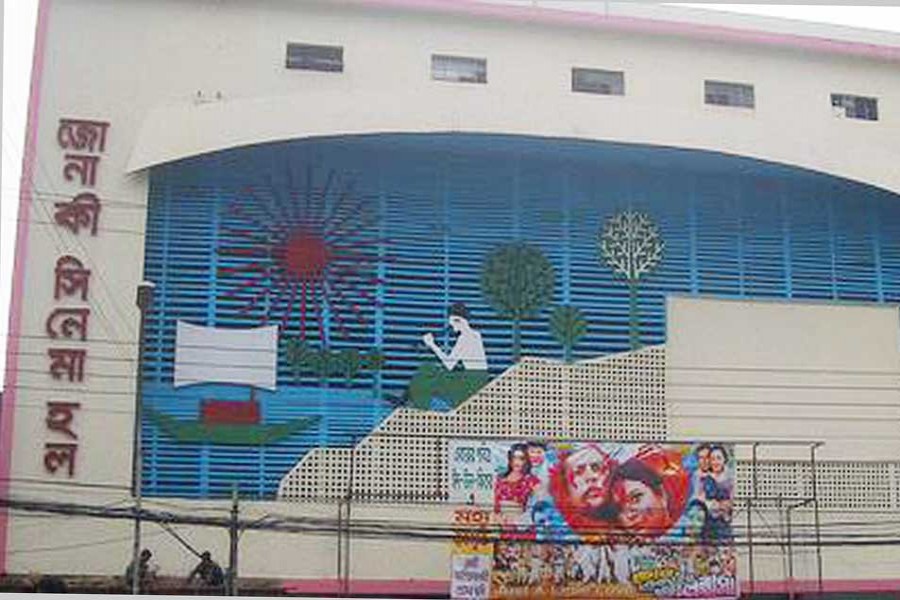
Published :
Updated :

The National Film Day was observed on April 03 like in the last seven years. The observance of the day began in 2012 at the initiative of Prime Minister Sheikh Hasina. The effort was taken with a noble vision that served as its leitmotif: Making better movies in Bangladesh. The declaration of the Film Day had reasonably generated hopes in the younger directors and producers. To what extent the local filmdom could bring about qualitative changes since the start of the day's observance is still fuzzy. Except churning out a handful of Mumbai-modelled glitzy productions, the total picture has been bleak and depressing. A few productions like 'Guerrilla' and 'Devi', have, however, created scopes for a breathing space. But the phase was brief.
The year when the premier inaugurated the day's annual observance, the cinema industry in Bangladesh was engaged in a last-ditch battle for its bare survival. By that year, over 70 per cent movie theatres in the country had been declared shut. In Dhaka, the centre of the country's film making for over six decades, only a handful of cinema halls kept their ticket counters open for a negligible number of audience who would trickle in on weekly or special government holidays. Many of them would be seen leaving the theatres during intermissions or much before. The online-based entertainment media had by then weaned majority of the middle-class movie-goers off the movie theatres.
In 2012, the culture of watching films at multiplexes in the capital had already passed eight years. In spite of their being focused on screening movies, those multiplexes had little ties with the films purely made in Bangladesh. In general, they used to screen mainly the big-budget Hollywood movies. It took Bangladeshi films more than a couple of years for being able to find a space among movies worth hitting the screens of the upscale multiplexes. By 2004, the tolling of the death knell for traditional Dhaka films had already been sounded. The declaration of April 03 as the National Film Day raised hopes among the movie makers about a revival of the dying film industry.
Back then it was mainly the promising young film makers who had been looking forward to a new dawn on the movie waste land of Bangladesh. They included both commercial film makers and the new-generation directors committed to cinema as a branch of the arts. All their dreams eventually proved futile. In a short time they found themselves in a stiff competition with Bangla movies from Kolkata. Since fully India-made movie ventures were not given screening permission in Bangladesh, the ploy of Bangladesh-India joint ventures came into being. To their misfortune, the Bangladeshi movie people, mostly artistes, remained financially losers in this business strategy. Meanwhile, the serious movie makers were eventually shoved into the twilight, and made to remain content with small-audience, low-budget ventures.
The National Film Day can make a difference to the moribund filmdom of Dhaka. In the initial years, the resolve of the movie people to salvage the Bangladeshi cinema was markedly evident. But eventually the enthusiasm began wearing out. What remained were mere formalities. Many people close to the Dhaka filmdom found it amusing that the cinema world's struggle for survival would deteriorate to this level that it had to brainstorm an escape route. Many have seen both the golden times and the decay of the Dhaka cinema. But the present situation was beyond their imagination. Maybe this is how the sun sets on the vibrant sector of a nation. A meaningful observance of the Film Day, free of ritualistic festivities, and coupled with multi-pronged renewal efforts, could greatly help the sector bail itself out from the current plight.
shihabskr@ymail.com


 For all latest news, follow The Financial Express Google News channel.
For all latest news, follow The Financial Express Google News channel.